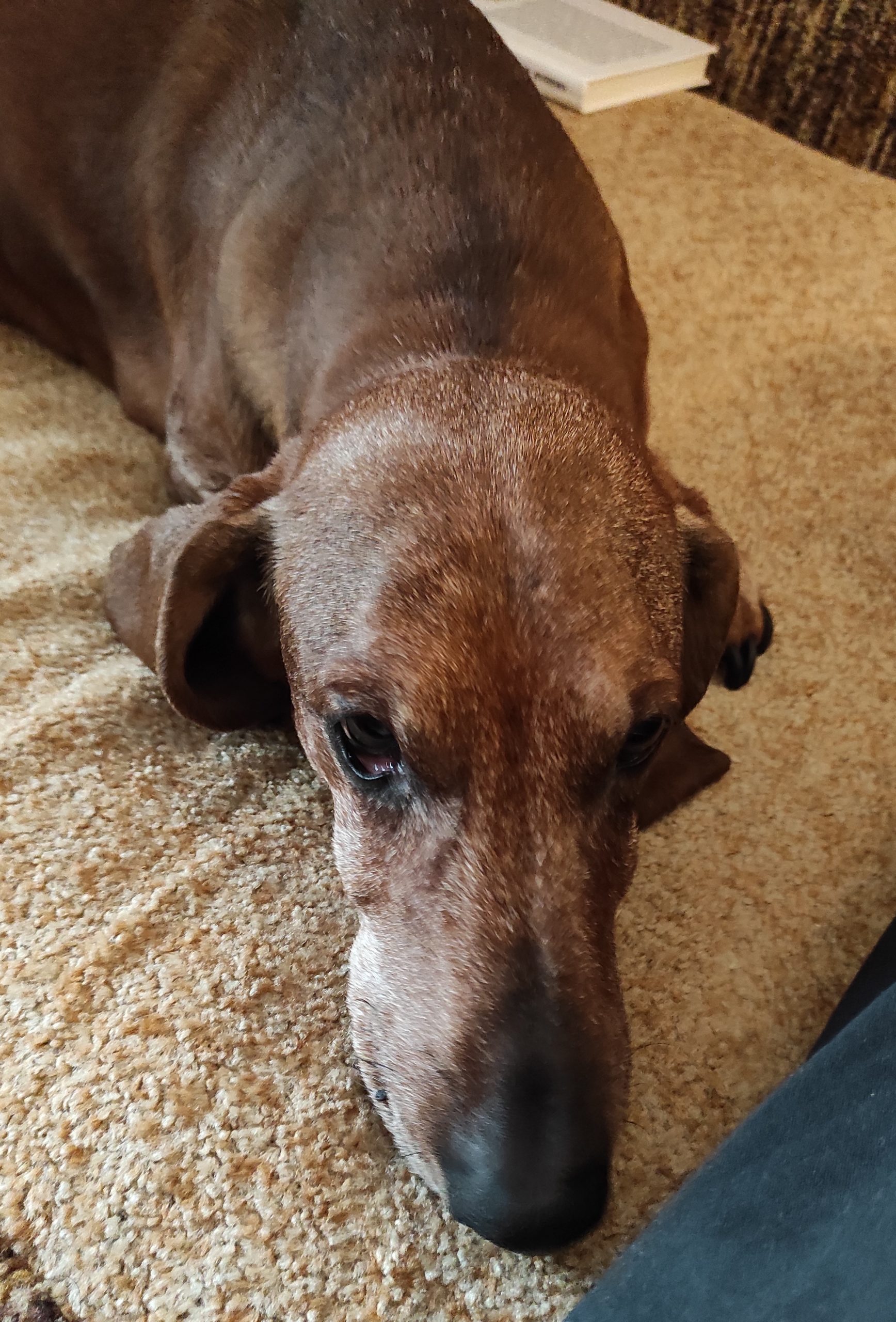My sweet little doggy Busya didn’t feel well last week. He had issues with his eye.
When my friend who doesn’t speak Russian asked me to share details I was a bit stuck.
It turned out I didn’t know the proper vocabulary to explain what exactly happened with Busya.
So my story looked like this:
“He has an issue with the eye. It’s just kinda .. I dunno how to explain. It’s infl-infl (I was trying to say “inflammation” but I didn’t know exactly how to pronounce it. So I drop it).
It (the eye) became bigger with a red .. it fell. They think it’s something with “conuctivite” (when I simply said a Russian word in English because I didn’t know how to pronounce it in English).
I dunno how to say it in English … it’s when you get something like an infection in your eye. So the whole stuff gets out there. And he doesn’t allow us to help. We went to the clinic and he didn’t like it because he didn’t like the doctor. It was the same doctor that cut his tail several years ago, so he still remembers him.
So, yesterday we call to another doctor. When he came we didn’t tell Busya that he was a doctor. We said it was just a guy. So Busya allowed him to look at his eye. We got some pills and start curing him. Now his eye looks much better”.
Of course, the friend did get the idea and wish Busya a quick recovery.

But I felt bad because I wasn’t able to retrieve the right words to explain the situation properly.
I mean after so many years of learning English (!) I still can’t explain some simple stuff.
Has it ever happened to you? When you have no problem with using words like “inevitable, controversial or investigation” but you don’t know how to tell about simple subjects around you like “scissors” or “ sink”?
It can happen if you don’t use those words in your daily life.
Let’s say you live in a non-English speaking country and all of your English conversations are usually around your professional field and your different passions – not about the mess in your house (hahaha).
So, later on, I looked up the words and this is how I would describe Busya’s condition now:
“It seems that he has conjunctivitis or pink eye as they call it. There’s inflammation there: the eye swelled and his lower eyelid is a bit lower than it normally should be.
The problem is that he didn’t allow a vet in the clinic to examine the eye. It was the same vet that had cut his tail several years ago, so since then Busya held a grudge against him. And now he also despises veterinary clinics in general.
So, we call to another animal clinic and ask a vet to visit us. When a vet came we didn’t tell Busya that he was an animal doctor. We said it’s just a guy. So Busya let him to inspect the eye. He prescribed some eye drops. Now Busya feels much better.”
Does it look better to you? Or at least more clear?
Why am I telling you this? Because this is how we can use real-life situations in order to improve our vocabulary.
Now tell me if you have ever experienced a similar situation (when you wasn’t able to express yourself in English in a more detailed way because of vocabulary).
Share your story and words that you learned thanks to it.
Can’t wait to hear your stories, as you know it’s one of the best ways to learn and remember words.
Do you want to learn more words? Sign up here.







When I started to communicate with foreigners I needed more vocabulary. Even when I write messages I often look up new words. For example, I descibed health problems with my back and didn’t know how to say that I needed a good “masseur” (massage therapist) and I used the word “massager”( which is an appliance).